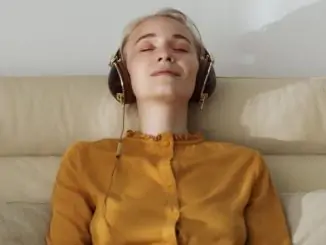
Heartbreak aids music discovery with two thirds (66%) of adults discovering new music after romantic breakups according to research by Deezer. Music is also important when forming relationships, with 21% of people on first dates pretending to know an artist or song.
In an international survey of 8000 adults in Brazil, France, Germany and the US, Deezer found that music tastes change dramatically after a life-changing experience, with 66% of lonely hearts admitting that new artists and songs help combat heartbreak. The research also found that a quarter of survey respondents (25%) seek out new music to rebuild our confidence after a romantic break-up or use music to move on and meet new people with over a fifth (21%) pretending to know a song or artist when asked on a first date.
During illness or stress, it would appear that we turn to new music with 39% using it to assist us during our recovery and 77% listening to music when feeling tense or nervous.
More than half of the respondents (56%) have turned to ‘mood’ playlists to match their emotional state, with 43% looking to relax, 31% when feeling stressed, and 27% of those experiencing bliss.
New positive changes in our lives can also motivate us to discover music, as 32% turn to music when starting a new job. When we’re feeling bold or adventurous, 46% seek out new music when traveling or exploring the world, while 19% use new music to help them find a new hobby.
Aurélien Hérault, Chief Research and Data Officer at Deezer, said: “It’s fascinating to see from our research how new music discovery is closely linked to the important phases and events in people’s lives. Music is always part of us and an evolving soundtrack to our lives. The good news is Deezer is ready to bring the music no matter what life moments awaits us.”
Interestingly, the moments in our lives when we turn to music vary country by country, as 70% of Brazilians found comfort in discovering new music after a break-up. Brazilians are also the most likely to pretend to have heard a song or artist on a first date (29%) while the French tend to keep it real, with only 18% exaggerating their musical knowledge. Germans are most inclined to turn to new music to help with recovery during times of illness or sadness, (68%) but are least likely to use mood generated playlists to discover new music (50%).
In a 2018 survey by the company it found that as we near our thirties, 65% of us listen to the same old tracks and stop discovering new music. The survey also showed that it is likely that our taste in music is shaped early on in our lives, as 72% of parents admitted to influencing their children’s music taste.




